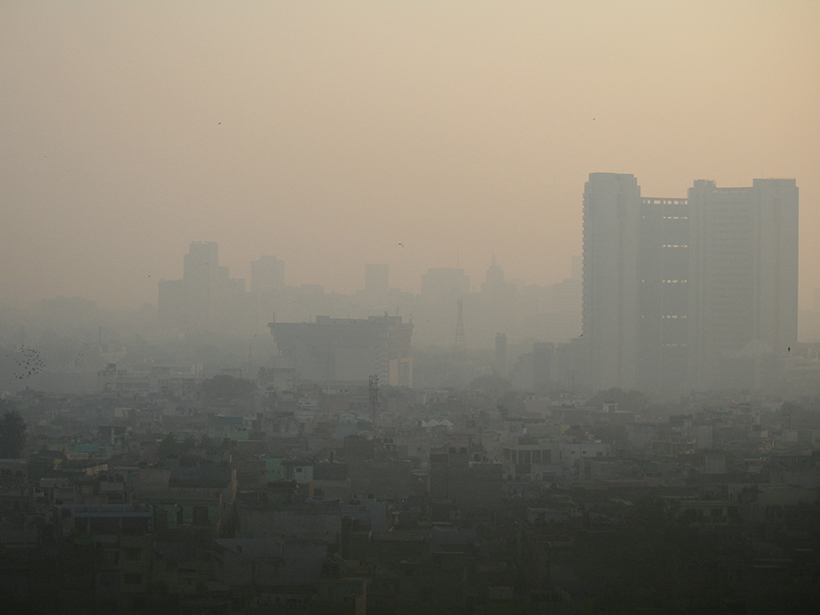Source: GeoHealth
Over 4 million people die every year from air pollution. Most of those deaths stem from cardiovascular and respiratory diseases caused by particulate matter in the air, although exposure to pollution can also hurt cognitive functioning and other bodily systems. The main culprit has been linked to a particularly potent class of particulate matter that has diameters smaller than 2.5 micrometers, known as PM2.5.
Although air pollution leads to poor health consequences, the exact mechanisms underpinning the relationship remain unclear. The reason is partly because different sources of pollution emit particles with different sizes: Fossil fuel combustion releases particles in the 100- to 300-nanometer range, whereas dust particles tend to weigh in above 1 micrometer, for instance. Depending on the size of the particle, it may deposit in different places within the body and may lead to varying health issues.
Kodros et al. investigate how health impacts from air pollution might differ between global regions because of differences in particle size. Particles of different sizes tend to deposit in different regions of the respiratory tract. The study is one of the first to estimate how particle deposition in the body, specifically the head/nose, tracheobronchial region (upper respiratory tract), and alveolar region (lower respiratory tract), varies around the world.
The authors find that on a global scale, the ratio of particulate matter mass in the lungs to PM2.5 in the atmosphere varies by 20% to 30% between highly populated regions. This variability is the result of differences in particulate size, which stem from differing regional emissions and atmospheric chemistry. For example, particulate matter in the eastern United States predominantly comes from fossil fuel emissions, whereas the larger particles in Algeria derive from dust. The authors show that regions with heavier particles (e.g., dust) have a higher ratio of particulate matter mass in the lungs to PM2.5.
[pullquote float=”left”]Countries around the world struggle to maintain healthy air quality, and this study suggests that the differences in the emissions of different aerosol types and sizes may lead to different health challenges.[/pullquote]The size (as well as chemical composition) of particulate matter that enters the body drives the human health reaction. The traditional view is that particles with diameters larger than 2.5 micrometers do not contribute greatly to particulate deposition in the deep lungs (lower respiratory tract) because most of their deposition is in the head or nose. However, the researchers show that when the concentrations of these larger particles are high (e.g., near deserts), these large particles can still be the dominant contributor to lower-respiratory particulate deposition. As a result, the authors suggest that these larger particles should be considered in future respiratory health studies.
Countries around the world struggle to maintain healthy air quality, and this study suggests that the differences in the emissions of different aerosol types and sizes may lead to different health challenges. The authors note the need for more data on aerosol size distributions, but the research is a critical first step in understanding how location can dictate how the body responds to inhaled particles. (GeoHealth, https://doi.org/10.1029/2018GH000145, 2018)
—Aaron Sidder, Freelance Writer
Citation:
Sidder, A. (2019), Aerosol particle size may contribute to varying health responses, Eos, 100, https://doi.org/10.1029/2019EO119277. Published on 04 April 2019.
Text © 2019. The authors. CC BY-NC-ND 3.0
Except where otherwise noted, images are subject to copyright. Any reuse without express permission from the copyright owner is prohibited.

